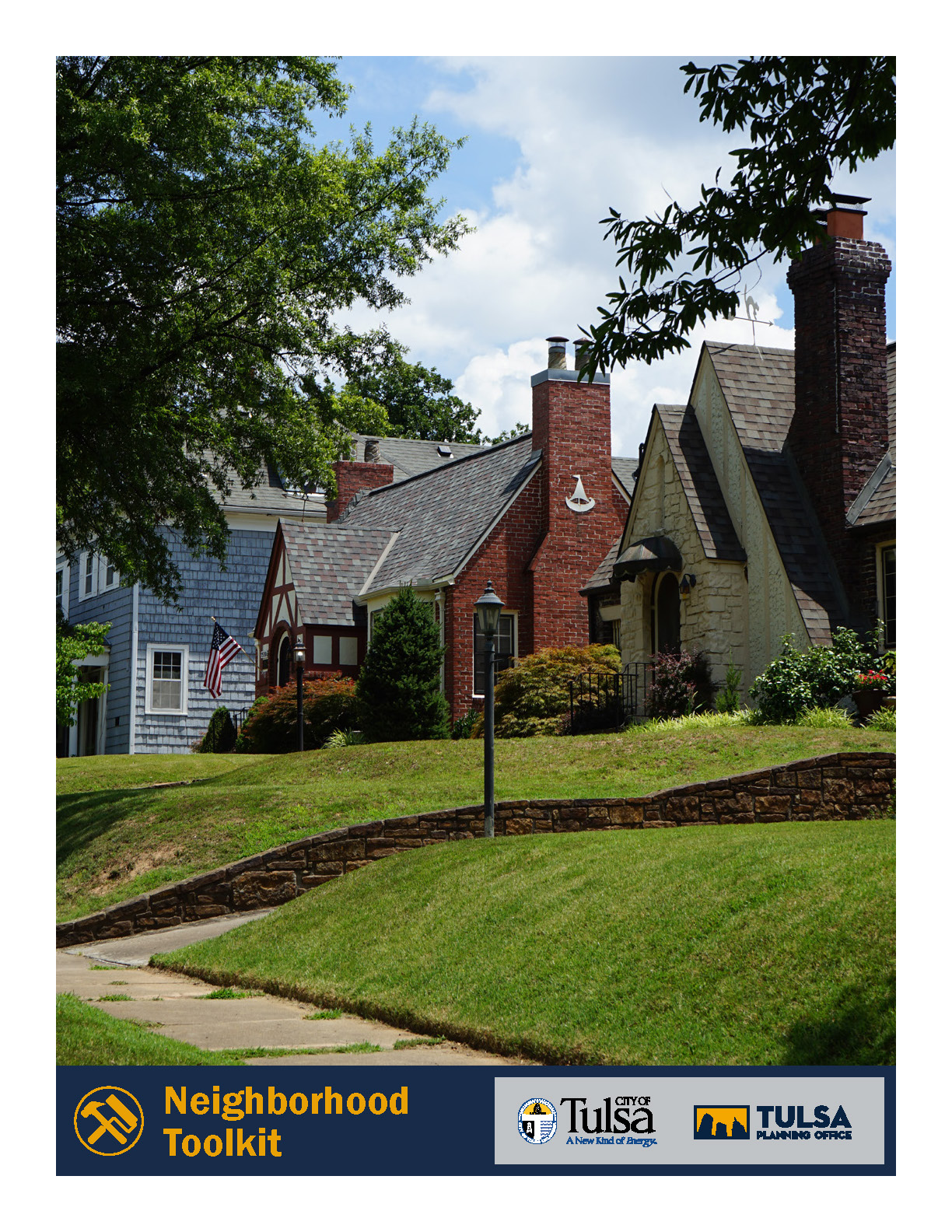Start an Alert Neighbors Program
Toolkit Contents
Projects
- Start a Neighborhood Association
- Develop a Neighborhood Identity Sign
- Throw a Block Party
- Organize a Neighborhood Cleanup
- Report Code Violations
- Establish a Neighborhood Tool Library
- Start an Alert Neighbors Program
- Prepare for an Emergency
- Install a Storm Shelter
- Plant and Care for Trees
- Install Rain Barrels
- Plant a Rain Garden
- Request Mixed-Use Zoning Along BRT Route
Description
It is important to feel safe in your own home and neighborhood, which is why many neighborhoods and apartment communities throughout the greater Tulsa area participate in the Alert Neighbors program.
The Alert Neighbors program teaches residents how to secure their homes, how to be safer in their homes and on the street, and what to look for and how to report suspicious activities. In addition, the sense of community formed by the program frequently serves as a catalyst for neighborhoods to thrive and invest in additional positive outcomes.
Basic Steps
- Get to know your neighbors.
In order to understand whether something is suspicious, you first need to get to know your neighbors and pay attention to what activities are normal for your block or neighborhood. Learn your neighbors’ names and share your contact information. When you are familiar with regular visitors, strangers in the neighborhood are easy to spot. Understanding your neighbors’ habits, and being able to recognize the cars they drive, what kinds of pets they have, and whether they have any medical conditions will help neighbors build connections with each other while keeping your Alert Neighbors group effective. - Choose a responsible person or group with the time and dedication to coordinate the program to serve as a Coordinator. Coordinators will establish a regular meeting schedule (at least once a year), coordinate and motivate Block Captains, establish communications lists (email/phone tree, Facebook page, Nextdoor group, etc.), and perform other duties. The Coordinator also organizes training for the group.
- Set up a Block Captain Network.
Block Captains usually manage the contacts within a single block or apartment building. They welcome new neighbors, providing materials on the program and encouraging participation. Block Captains also organize, maintain, and manage contact structures in order to collect and disburse vital information. - Set up a solid participant base.
Residents are the eyes and ears of the neighborhood. Once trained, engaged, and managed, this group can help increase the overall safety of the neighborhood. - Be alert.
Once you are more familiar with your neighbors and your neighborhood, you’ll be able to spot suspicious activities more easily. Pay attention to details so you can make an accurate report to law enforcement officials, if necessary. - When you are going to be out of town, let your neighbors know so they can keep a watchful eye over your house. Ask a friend or neighbor to regularly check your mail, and don’t forget about lawn maintenance. Putting interior lights on timers is another way to make it look like the home is occupied when you’re away.
“The trust of a city street is formed over time from many, many little public sidewalk contacts… Most of it is ostensibly trivial but the sum is not trivial at all.”
Resources
Tulsa Crime Stoppers
tulsacrimestoppers.org
918.585.5209
Tulsa Crime Stoppers offers education about crime prevention, including the Alert Neighbors program.
Neighborhoods and groups can also request presentations on a number of topics, including fraud prevention, Alert Neighbors, Alert Businesses, senior safety, personal safety, holiday safety, workplace violence prevention, distracted driving, active shooter, and more.
To request a presentation, visit tulsacrimestoppers.org/prevention-programs/alert-neighbors-3/.
Tulsa Police Department
The Tulsa Police Department offers safety presentations to community and school groups. Requests received for programs within the City of Tulsa and with more than three weeks’ notice are given priority.
cityoftulsa.org/apps/TPDProgramRequest/ProgramRequest.aspx
Online Communication
Many neighborhoods have established groups or pages on Facebook, Nextdoor, Ring, and other social networking sites. These sites provide effective ways for neighbors to communicate with each other. If your neighborhood or apartment community is not online, talk to your association or neighbors about setting up a page or group.
Emergencies
Always call 9-1-1 in case of an emergency
